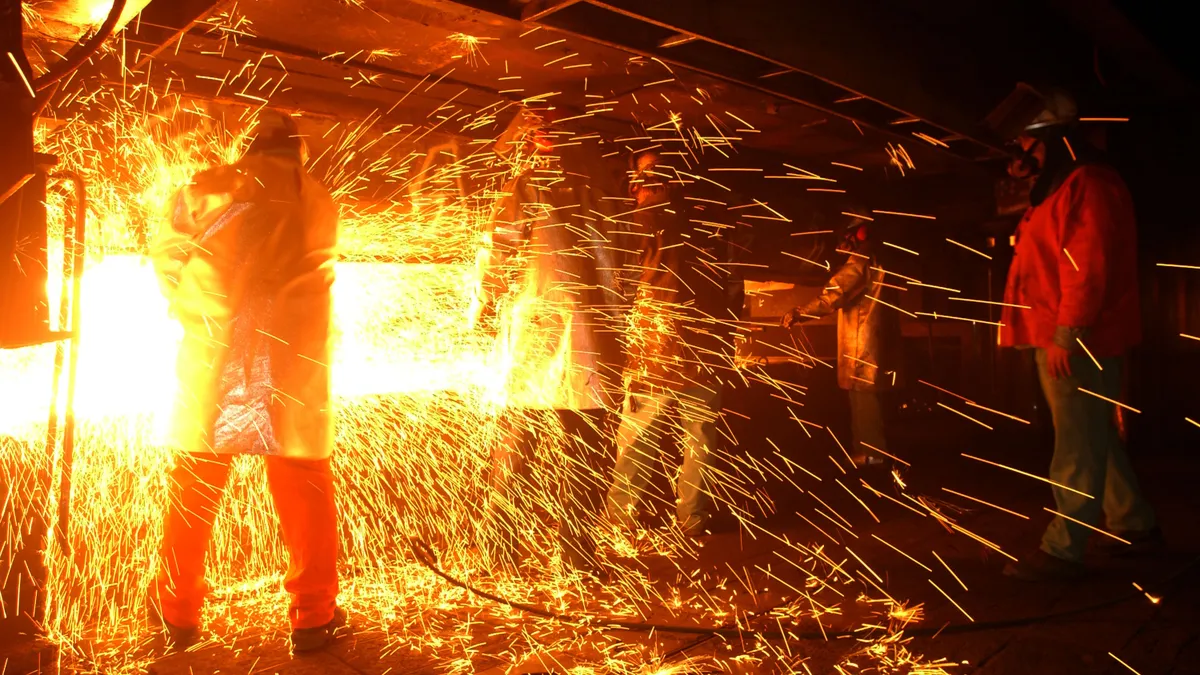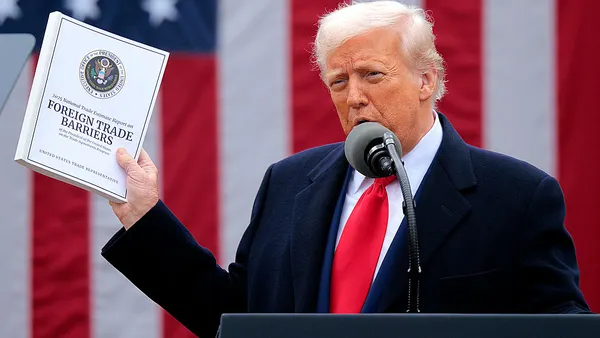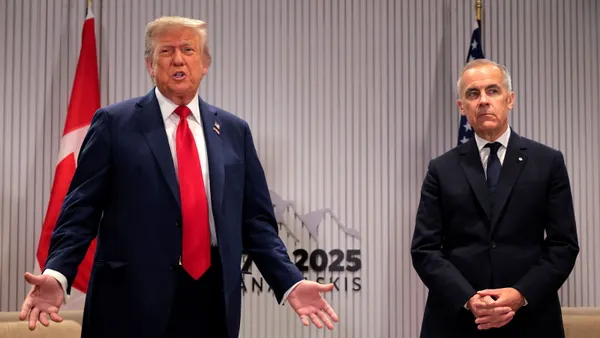Dive Brief:
- The Biden administration lashed out at the World Trade Organization, with U.S. Trade Representative Adam Hodge “strongly” rejecting the conclusions of a dispute panel reviewing domestic tariffs on aluminum and steel imports.
- In a series of reports issued last week, the WTO found that the tariffs, which date back to the Trump administration, violate certain terms of a 1994 trade agreement. The dispute panel rejected exceptions the U.S. made by claiming the duties were necessary for national security reasons.
- “These WTO panel reports only reinforce the need to fundamentally reform the WTO dispute settlement system,” Hodge said in a statement late last week.
Dive Insight:
When then-President Donald Trump announced the aluminum and steel tariffs in 2018, he said they would remain in place for “a long period of time.” Indeed, they outlasted his presidency, and his successor continues to defend them.
The tariffs sparked talk of a modern trade war between the U.S. and China when they were first implemented. Trump couched the tariffs in terms of industrial policy, saying to steel and aluminum executives at the time the tariffs were announced, “You will have protection for the first time in a long while, and you’re going to regrow your industries.” At the same time, the Commerce Department claimed national security exemptions to trade agreement rules.
Nearly five years later, the WTO rejected claims made by the U.S. that the tariffs are necessary for national security and exempt from trade agreements. Specifically, the WTO panel found that the tariffs were not undertaken in a “time of war” or “other emergency in international relations,” and so are not justified under trade agreement provisions.
The Commerce Department, ahead of instituting the tariffs, argued their necessity on security grounds by because of the metals’ importance to national defense equipment and the negative impact of market overcapacity on the domestic U.S. steel and aluminum production industries.
Hodge blasted the WTO panel’s findings, which followed complaints from China and other WTO countries about the duties.
“The United States has held the clear and unequivocal position, for over 70 years, that issues of national security cannot be reviewed in WTO dispute settlement and the WTO has no authority to second-guess the ability of a WTO Member to respond to a wide-range of threats to its security,” Hodge said.
The trade representative said further that the WTO “has proven ineffective at stopping severe and persistent non-market excess capacity” from China and others, one of the reasons the Trump administration targeted steel and aluminum originally.
The stakes in the decision itself relatively low at the moment. The U.S. can appeal the panel’s decision, but the U.S. has blocked appointments and selection processes at the WTO’s Appellate Body, leaving it unable to act for now.
The U.S. has cut deals to ease aluminum and steel tariffs with some of its trade partners. Earlier this year it reached an agreement with the United Kingdom to partially lift tariffs in exchange for eased duties on U.S. imports such as jeans, whiskey and motorcycles. In late 2021, it reached a two-year deal with the European Union that eased tariffs below an import quota and gave the two parties time to renegotiate a permanent end to tariffs.














